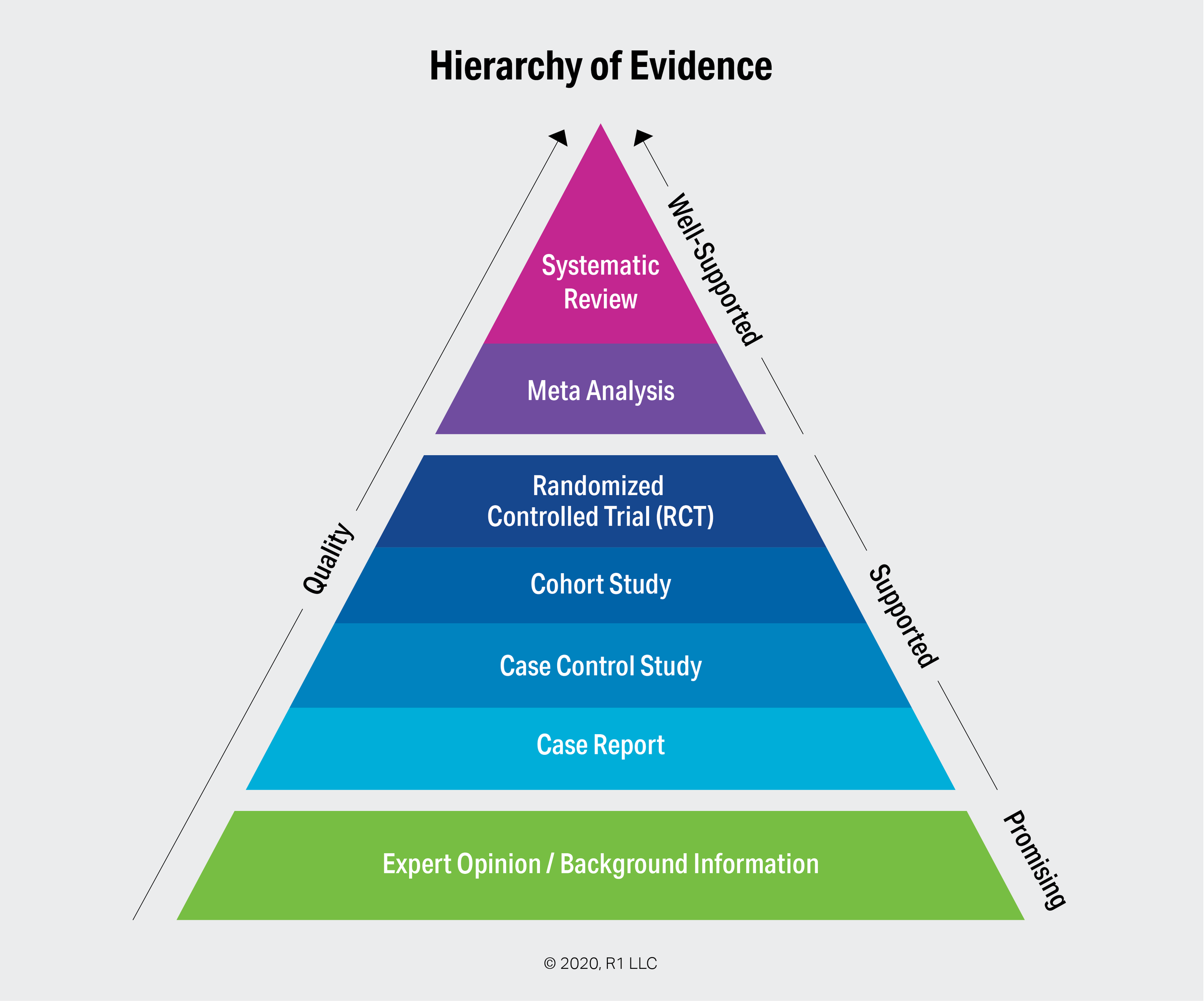At this time, there is no single authoritative body that defines which among the hundreds of ‘Evidence-Based” programs and practices are “best” or most well-supported by research evidence. Despite this fact, there are some practices which routinely appear on nearly all lists of evidence-based practices for substance use disorder. In the latest installment of R1’s Evidence-Based blog series we take a look at eight “consensus” evidence-based practices,
Read MoreHow does one guide clients through the minefield of early recovery when the customary tools and resources are unavailable? Likewise, How do we keep staff engaged in routine training and continuing education from a distance? How do we adhere to our standard policies and procedures in this climate?
Read MoreThe term ‘evidence-based’ seems quite straightforward. However, there are a lot of proverbial devils in the details of qualifying, quantifying, and appraising the evidence. Looking at a typical ‘Hierarchy of Evidence’ provides a good overview of the types, strength, and quality of the evidence and opens the door to tackle some of the considerations in assessing evidence-based practices.
Read MoreA quick Google search of “evidence-based practices” returns 300 million results. A more surgical search of “evidence-based practices for substance use disorders” still generates more than 50,000 results. Why is the term so broadly used and what exactly does it mean?
Read More



